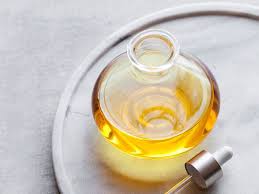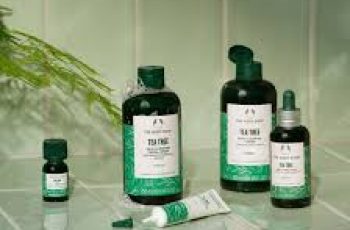
Hazelnut Oil in Skincare: A Comprehensive Guide Backed by Dermatologists
In recent years, hazelnut oil has emerged as a star ingredient in skincare formulations, praised by both dermatologists and natural beauty enthusiasts alike.
This lightweight, nutrient-rich oil, derived from the nuts of the Corylus avellana tree, offers a wealth of benefits for the skin.
From antioxidant protection to hydration, barrier support, and even mild antimicrobial effects, hazelnut oil has proven itself to be a versatile and effective natural remedy.
But as with any skincare ingredient, hazelnut oil isn’t one-size-fits-all.
While it may work wonders for some skin types, it might not be suitable for others—particularly those with acne-prone or ultra-sensitive skin.
In this in-depth guide, we’ll explore the origins, composition, benefits, safety concerns, and ideal use cases of hazelnut oil in skin care.
We’ll also discuss what the latest research says, how to choose the right product, and how to incorporate it into your regimen.
🌰 What Exactly Is Hazelnut Oil?
Hazelnut oil is a botanical oil obtained from cold-pressing hazelnuts, a nutrient-dense tree nut widely cultivated in parts of Europe, Asia, and North America.
Unlike heavier plant oils, hazelnut oil has a thin, almost dry texture, which allows it to absorb quickly without leaving a greasy residue on the skin.
It has a faint, nutty aroma and is often used as a carrier oil in both aromatherapy and skin care formulations.
Key Constituents of Hazelnut Oil:
Hazelnut oil owes its skincare benefits to its rich blend of naturally occurring bioactive compounds:
Vitamin E – A potent antioxidant that helps neutralize free radicals and promotes skin healing.
Oleic Acid (Omega-9) – A monounsaturated fat that enhances skin permeability and softness.
Linoleic Acid (Omega-6) – An essential fatty acid that plays a key role in reducing inflammation and strengthening the skin’s natural barrier.
Palmitic and Stearic Acids – Saturated fats that lend an emollient, creamy texture to the oil, though they can be mildly comedogenic.
Ferulic, Gallic, and Caffeic Acids – Plant polyphenols with strong antioxidant properties that help reduce oxidative stress and prevent collagen degradation.
✨ Top Benefits of Hazelnut Oil for Skin
1. Antioxidant and Anti-Aging Properties
Thanks to its high concentration of vitamin E and phenolic compounds, hazelnut oil offers a powerful shield against oxidative stress caused by pollution, UV radiation, and environmental toxins.
These antioxidants help prevent the breakdown of collagen and elastin, two proteins that give skin its structure and firmness.
With regular use, hazelnut oil may help reduce fine lines, increase elasticity, and restore a youthful glow.
Interestingly, some studies suggest that hazelnut oil may also offer mild natural UV protection.
While this should never be used in place of a sunscreen, it may provide an extra layer of defense when used under your SPF.
2. Superior Moisturization for Dry Skin
One of the most celebrated properties of hazelnut oil is its ability to lock in moisture. Its high oleic acid content allows it to deeply penetrate the skin and trap hydration without clogging pores.
This makes it particularly beneficial for individuals with dry or dehydrated skin who are looking for a non-greasy, quick-absorbing emollient.
For even better results, hazelnut oil can be mixed with other oils like rosehip (rich in linoleic acid) or squalane (a stable, skin-identical moisturizer) to create a synergistic hydration blend.
3. Soothing Inflammation and Redness
Thanks to its linoleic acid content, hazelnut oil possesses anti-inflammatory properties that can calm irritated or reactive skin.
Whether you’re dealing with redness from rosacea, dryness due to eczema, or flares from psoriasis, applying hazelnut oil can help restore balance and reduce discomfort.
In addition, by reinforcing the lipid barrier, hazelnut oil helps protect the skin from external irritants and reduces transepidermal water loss (TEWL), which is common in compromised skin conditions.
4. Mild Antimicrobial Action
Hazelnut oil also contains naturally occurring compounds that exhibit mild antimicrobial effects.
While it’s not a replacement for medical treatments, it may offer support in reducing bacterial load on the skin, which could be helpful in preventing minor infections or managing acne.
For those with oily or acne-prone skin, this aspect of hazelnut oil is particularly relevant.
Used carefully, it may help reduce blemishes without over-stripping the skin, which can exacerbate breakouts.
5. May Prevent Glycation
Emerging studies indicate that hazelnut oil may help reduce the effects of glycation—a process where sugars bind to proteins like collagen, causing them to stiffen and lose function.
Glycation is a major contributor to skin aging, particularly in individuals with high sugar consumption or those with metabolic conditions.
While the research is still early, these anti-glycation properties make hazelnut oil an exciting ingredient in anti-aging skincare strategies.
⚠️ Safety Considerations: Is Hazelnut Oil Right for You?
Hazelnut oil is generally well-tolerated and considered safe for most skin types. It is:
Hypoallergenic for the majority of users
Non-fragrant and gentle for sensitive skin
Rated low hazard by the Environmental Working Group (EWG)
Environmentally sustainable when ethically sourced
However, a few precautions are necessary:
Tree Nut Allergies: Individuals with known nut allergies should exercise caution. Although cold-pressed oils are often low in allergenic proteins, a patch test or physician consultation is advised.
Acne-Prone Skin: While hazelnut oil has a relatively low comedogenic rating (1–2 out of 5), its palmitic and stearic acid content might clog pores in very sensitive or acne-prone individuals.
Always patch test first.
Storage: Because of its unsaturated fat content, hazelnut oil can go rancid if exposed to heat or light. Store it in a cool, dark place in an airtight container.
🌿 Using Hazelnut Oil by Skin Type
🔹 For Mature or Aging Skin
Hazelnut oil’s antioxidant profile makes it a potent ally in anti-aging routines. Its emollient texture supports hydration, while antioxidants slow collagen breakdown.
Combine with: Vitamin C serums, peptides, niacinamide, and retinoids for enhanced anti-aging synergy.
🔹 For Oily and Acne-Prone Skin
While some may worry about using oils on oily skin, hazelnut oil’s linoleic acid content can actually benefit acne-prone individuals.
Research has shown that acneic skin often lacks linoleic acid, leading to sticky sebum and clogged pores.
Use sparingly or blend with: Jojoba oil, grapeseed oil, or hemp seed oil (all non-comedogenic). Avoid using if you notice increased breakouts.
🔹 For Dry, Dehydrated Skin
Hazelnut oil is an effective remedy for flaky or rough skin. It penetrates quickly and leaves a silky finish without occlusion.
Layer with: Hyaluronic acid serums, ceramide creams, or thicker balms for overnight hydration.
💆♀️ Hazelnut Oil in Massage and Body Care
Hazelnut oil is commonly used in massage therapy due to its smooth, rich texture and gentle feel. It:
Offers excellent glide for massage techniques
Absorbs without leaving a sticky or greasy residue
Provides antioxidant support during skin manipulation
Can be blended with lighter oils like almond, apricot kernel, or jojoba
Its slightly viscous consistency makes it ideal for body balms, hand creams, and post-shower body oils.
🌱 Sustainability & Environmental Impact
Hazelnut trees are hardy, low-maintenance crops that can thrive in a variety of climates. When grown under sustainable farming practices, they offer several environmental benefits:
Low water footprint compared to synthetic oil ingredients
Support for biodiversity in forest-agriculture systems
Carbon sequestration via long-lived tree crops
Choosing organic or ethically sourced hazelnut oil ensures both your skin and the planet benefit.
🧪 Common Product Forms Featuring Hazelnut Oil
Due to its versatility, hazelnut oil appears in numerous product categories, including:
Facial serums and moisturizers
Massage oils and body butters
Cleansing oils and makeup removers
Anti-aging night creams
Lip balms and eye creams
Its mild aroma and pleasant absorption profile make it a favorite in both luxury and natural skincare lines.
🧬 Still Not Sure If Hazelnut Oil Is Right for You?
Every skin type is unique. To determine if hazelnut oil fits your skin’s specific needs, consider taking a scientifically backed skin type assessment like the Baumann Skin Type® Quiz.
This tool was developed by dermatologists to help users build a personalized regimen based on their skin’s unique traits—including oil production, sensitivity, pigmentation, and more.
👉 [Take the Free Quiz Now]
📝 Final Thoughts
Hazelnut oil is more than just a trendy ingredient—it’s a scientifically supported, multi-functional component that offers real skincare benefits.
From antioxidant protection and barrier repair to calming inflammation and improving hydration, this natural oil has something to offer most skin types.
However, it’s essential to use hazelnut oil appropriately based on your skin’s characteristics. While generally safe, those with allergies or very acne-prone skin should proceed with caution.
For everyone else, hazelnut oil may be a valuable addition to your skincare arsenal—especially when combined with complementary ingredients.
If you’re still unsure or have questions about incorporating it into your routine, speak to a board-certified dermatologist—or drop your questions in the comments below. We’re here to help.


